Hymn of the Month for October is “Jerusalem the Golden” which is a Christian hymn by John Mason Neale (1818-1866). The text is a translation of a section of Bernard of Cluny’s (12th century) Latin verse satire De Contemptu Mundi. The hymn is accompanied by the tune Ewing by the Scottish born composer Alexander Ewing (1830-1895).
Ewing by Alexander Ewing
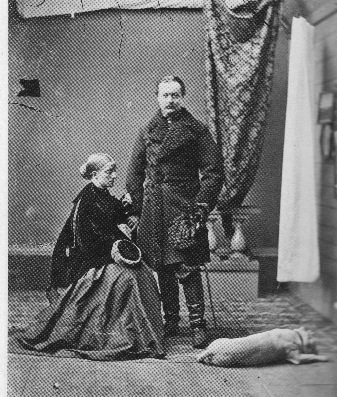
Alexander Ewing was a musician, composer and translator in addition to being a career officer in the British Army. He was born in Aberdeen, Scotland and studied Music and German at Heidelberg University and Law in Aberdeen. He was regarded as an extraordinary talented young musician and was also a member of the Aberdeen Harmonic Choir and the Haydn Society of Aberdeen.
In 1853 Ewing composed a tune for Neale’s hymn “For Thee, O Dear, Dear Country” which was first performed by the Aberdeen Harmonic Choir. While he was serving overseas with the army, his relative the Bishop of Argyle and the Isles submitted the music to the editor of Hymns Ancient and Modern, where it appeared in 1861 as the tune for “Jerusalem the Golden”. The hymn became very popular, but because the Bishop’s name was also Alexander Ewing, he was generally believed to have written the tune.
Jerusalem the Golden by John Mason Neale
Not much is actually known of the original author of this hymn song. Bernard of Cluny, or of Morlaix as he is also known, was a French Benedictine monk during the 12th century. As far as it is known, he spent most of his life at the Abbey of Cluny, and probably also died there. The exact date of his birth and death are not recorded though.
While at the Abbey Bernard wrote “De contemptu mundi”, a 3000 verse poem of stinging satire directed against the secular and religious failings he observed in the world around him. “Jerusalem the Golden” is a translated section from this original poem by John Mason Neale. As beautiful as this hymn is, it is really far too jubilant to give any idea of the prevailing tone of the original.
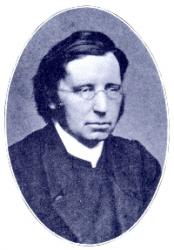
Neale was an Anglican priest, translator, scholar and hymn writer. He was born in London and educated at Sherborne School and later at Trinity College in Cambridge. Already at the age of 22 he was the chaplain of Downing College, Cambridge. Many Anglicans in those days were very suspicious of Neale and some accused him of effectively being an agent of the Vatican. During his years he was subjected to many verbal threats but was also physically attacked on numerous occasions.
Neale is a well-known hymn writer, having enriched English hymnody with many ancient and mediaeval hymns translated from Latin and Greek. More than anyone else, he made English-speaking congregations aware of the centuries-old tradition of Latin, Greek, Russian, and Syrian hymns. His most enduring legacy is probably the contribution to the Christmas repertoire, notably: “Good Christian Men, Rejoice”, and “O come, O come, Emmanuel” (translation).
Watch the video
This is played on a custom built Envoy 23-S, which is a very popular church instrument.
About Jonathan Kingston’s Musical Background
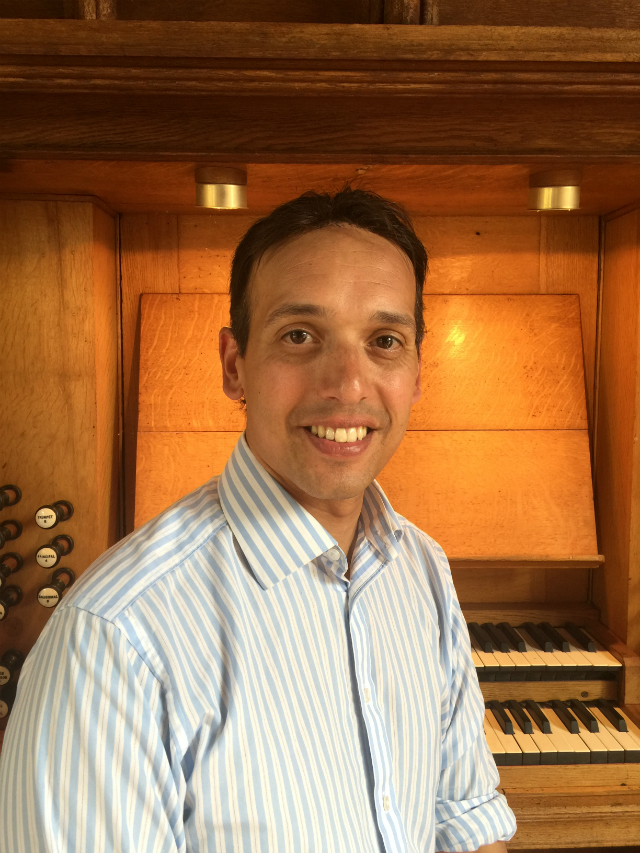
Jonathan was an organ student while studying with Ian Tracey and Ian Wells at Liverpool Anglican Cathedral before being appointed Sub Organist at Bradford Cathedral, aged 18. Assistant Director and Director of Music appointments followed at Stowe and Bromsgrove Schools before an appointment to The King’s School in Ely where he served Ely Cathedral as a deputy organist.
Jonathan is a recording artist for Naxos, Priory and EMI Records and is an ABRSM examiner and coordinator touring the UK and internationally. As an organist, he has appeared with many leading orchestras and choirs including the Royal Liverpool Philharmonic, Halle, London Symphony Orchestra & Chorus and English Symphony Orchestra as well as featuring in many live broadcasts on BBC radio and television.
He is the newly appointed Director of Music at Stony Stratford Parish Church where he presides over the magnificent Willis pipe organ.
Jonathan’s Work With Viscount
Jonathan’s work with Viscount Classical Organs encompasses performing and presenting promotional and tutorial material for the company and his freelance portfolio covers educational outreach, teaching, performing, examining and musical direction. He covers several areas for Viscount from sales, demonstrations, voicing of instruments and performing. His playing features on the current promotional DVD material for Viscount, and he would be very pleased to hear from any churches or individuals requiring an engaging and lively recitalist. If you would like to connect with Jonathan directly, please feel free to follow him on Twitter (@jonkingston) or by email on jonkingston@hotmail.co.uk.
About the Digital Organ Being Played
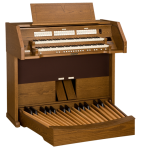
Jonathan plays this piece on an instrument based on our Envoy 23-S. A ‘Physical Modelling’ based instrument with 23 stops in a real wood veneer cabinet. It has a huge internal library allowing the user to create 4 totally individual voice pallets from classic English through Baroque and Romantic. It benefits from a full complement of divisional thumb pistons and additional toe pistons. The standard 23-S organ has a 30 note pedal board while the instrument in the film has a 32 note board. For more information have a look at the specifications here.
I have had a passion for church organs since the tender age of 12. I own and run Viscount Organs with a close attention to the detail that musicians appreciate; and a clear understanding of the benefits of digital technology and keeping to the traditional and emotional elements of organ playing.
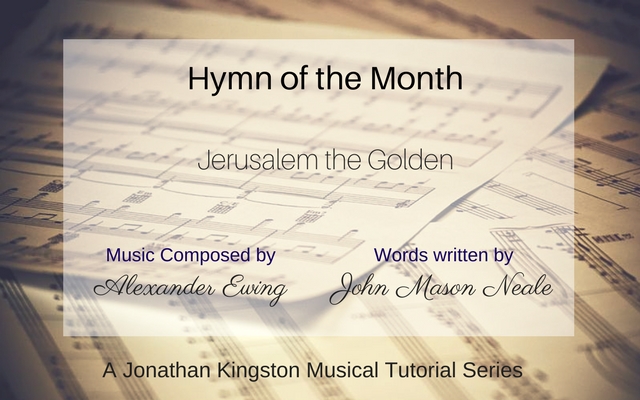



This is incredibly helpful. Thank you!